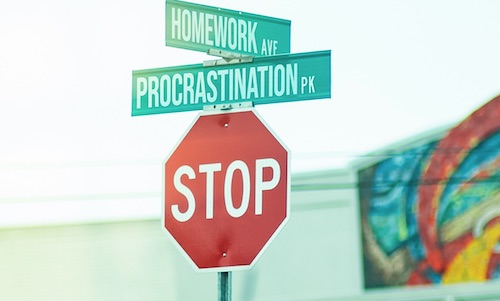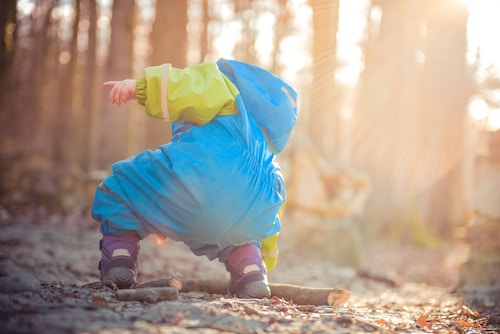Anna Lascols, Organizing Geneva
 Anna Lascols is the founder of Organizing Geneva and your decluttering expert.
Anna Lascols is the founder of Organizing Geneva and your decluttering expert.
Her mission as a professional organizer is to improve people’s lives by coaching them how to set up and maintain efficient systems to keep their time and space in order. Anna helps her clients to visualize their ideal lifestyle and works side-by-side with tem to reach their goals. These can range from redesigning their closet à la Marie Kondo to getting their paperwork under control, improving their time management skills or preparing for the arrival of a baby.
Anna is a KonMari Consultant and a member of the Swiss Association of Professional Organizers (Swiss-APO). She works in and around Geneva and provides her services is English, French, German and Spanish. She offers personal organizing sessions, virtual coaching and organizes workshops on various organizing and zero waste topics.
To learn about Anna, please visit her website: www.organizing-geneva.com.

Photo by Pedro da Silva on Unsplash
By Anna Lascols, Organizing Geneva
Margaret Thatcher said: « Plan your work for today and every day, then work your plan ». Sounds easy. But what if we plan the hell out of our work…and then get stuck?
All of a sudden, there is a white wall in front of us with no door. The project seems too complex anyways. And we will probably fail. It can probably wait a bit. And then something else comes up that looks much more urgent, and interesting, and fun. Like a Facebook ad leading us to an event invite and a blog article like this one… as soon as we look up, three hours are gone and our plan did not work out. Excuses and distractions are ubiquitous and very easy to find. Procrastination is the name of the game.
Yes, your project can wait. And there is enough interesting information out there to keep you busy and excited for the next couple of years. And you will master the situation last minute if needed. Yet, how do you feel after procrastinating? Probably frustrated and exhausted to find excuses and justify your delay. Tired from rescheduling, starting again, never having a free mind.
So what are the actual causes of procrastination? Why does our brain stop us from working our plan? There are technical reasons like the project is actually too complex or we over-estimate the time the task takes. But most of the time, the causes are psychological. Often, we are afraid of failing or succeeding and prefer to stop before heading off into the unknown. Or we are the perfectionist kind and cannot move on unless the tasks are completed to our full satisfaction. Sometimes the underlying reason behind that is actually a lack of self-confidence and a need to prove that we are perfect.
Now, think about the benefits of not procrastinating. If you get your unpleasant tasks out of the way and work your plan, you will be able to reduce your stress and frustrations and enjoy much more free or me-time. Imagine the difference between the kid whose mother has been yelling after for three hours because he kept procrastinating on his homework and the kid who had three hours of free time to play with his mates…

By Anna Lascols, Organizing Geneva
Did you know that every hour, 10 billion emails are being sent around the world? Yes, life has become so much easier and faster with the internet, email and cloud services, online communication and bill paying. We have less paper flying around, can research documents by typing their name in the search bar of our computer, find all the information we need on google and store as many files as we want. Everything is virtual, or in other words not physically existing and hence causing no clutter or damage to the planet.
Wait a minute, is that true?
Let’s check some facts on the carbon footprint of those 10 billion emails. What if I told you that every email runs on average through 15,000 km of cables to arrive at destination? That an email with a 1 MB attachment consumes as much as a 25W light bulb during one hour? That data centers in Switzerland consume as much electricity as the canton of Neuchâtel? That 78% of all incoming mails are spams that cause around 20 million tons of CO2 every year? And the list goes on. In reality, the online world has a huge carbon footprint and we contribute to it every time we send an email, store a document or research information.
And not only that. We believe that emails and computer desktops banish all the admin and paper clutter. Yet in reality, we can feel as much overwhelmed by online than by offline or physical clutter. We can’t touch it, but we can see the apps and folders piling up, we lose control over our filing systems, lose time looking for information or retrieve passwords, keep offline duplicates of online invoices to be safe, feel puzzled with the new time saving apps being promoted and are spammed by useless newsletters. We spend much more time on our emails and computer admin as we think, if you don’t believe me keep a time log!
Here a couple of online organizing and energy saving tips:

Photo of Marie Kondo licensed by KonMari Inc.
By Anna Lascols, Organizing Geneva
Now that I am an officially certified KonMariTM Consultant (yay!), I thought it would be appropriate to discuss this exceptional advice by Marie Kondo: Choose joy. Why? Because it changed my life, and I firmly believe the world would be much more beautiful if everyone followed her guidance.
So why is there such a hype around sparking joy? What does joy actually mean? It’s not tangible, it’s abstract, it’s vague. Is it?
The official definition of ‘joy’ is: “A joy is something or someone that makes you feel happy or gives you great pleasure.” Still abstract, right? Most of my clients take quite a while to determine if the green shirt they picked up from their pile of clothes is actually making them happy. Happy as in ‘my husband gave it to me’ or ‘I was so happy when I bought it’ or ‘it’s comfy to wear at home’? or ‘I might be happy next time I wear it’? Are these elements defining happiness, pleasure and joy? Should I keep the shirt or discard it?
This is where Marie steps in, with her new definition of joy. She is the first to add a very clear and tangible aspect to joy, because according to her you can actually FEEL it. When an items sparks joy to you, your body should first react to it, not your mind. She describes it as if every cell in your body rises, whereas you feel tired, negative and sinking when an item does not spark joy. The first time my clients experience this feeling, by picking up their favorite shirt and comparing it to another, they start grasping the idea. Others describe it as fizzy champagne, beautiful colors or shining stars. Whatever you call it, you should feel the sensation.

Photo by Plush Design Studio on Unsplash.
By Anna Lascols, Organizing Geneva
“Back to school” is one of our favorite topics that comes back every year… and not only reminds us of rainbow colored pencils but also evokes heavy planning, hectic mornings, pointless drama, lists of school supplies and a longer to-do list than ever.
Does it have to be like that? Every year? Really?
Let me give you a couple of valuable tips that will change your back to school days forever.
First of all, start with yourself
Your children usually reflect your own attitude like a mirror. You are their example, their guideline. How do you expect them to stay positive and be motivated if you start complaining about the workload even before coming home from the beach? How do you want them to be relaxed if you are tense and rushing through the days? How do you want them to stop whining if you don’t have time to listen to them? You got it, your mantra should be “Keep calm and get organized”. Before leaving on holidays, make sure to plan your return and have a look at deadlines. When do you have to sign up the kids for their activities? What time do you have to bring them to school? Once you come back, start blocking time slots in your agenda for back to school logistics, such as shopping for supplies. Block yourself some quality time with the kids which is not spammed with admin. And make sure to plan all this around your own work or personal agenda. If you have all the dates and gates under control, you will feel more confident and be able to enjoy this exciting moment with your kids.
Create a morning and nighttime routine
There is nothing more important for children than structured mornings and night times. The first days at school usually feel like chaos as these routines are not yet set up. The kids refuse to get out of bed, keep looking for their school supplies, miss the breakfast and go to bed too late. That means a stressful start of the day and not enough sleep. I recommend to start getting back into the school rhythm a couple of days before school starts. And it is worth trying a couple of new strategies: start the morning process a bit earlier to take the pressure off; invest in an efficient alarm clock; use a picture chart, magnet board or list with all the subsequent tasks the kids need to complete in the morning (make the bed, brush the teeth, have breakfast, get dressed etc.). Make them tick the box or place the magnets when they are done, make it a game or competition…adjust the routine to your needs but make sure it’s exactly the same every morning. In the evenings, prepare the clothes and backpacks for the next morning. Keep the same bathing, reading, singing routine every night and try to stick to your timings. Your kids will sleep better and wake up with a smile.

By Anna Lascols, Organizing Geneva
Have you heard about headlines such as “Want to fight climate change? Have fewer children”. The Guardian and many other newspapers are trying to inform us on the massive impact our children have on the environment. In fact, a research published in ‘Environmental Research Letters’ states that having one fewer child would save a parent 58.6 tons of CO2 equivalent per year. Which is 24x bigger than living without a car and 279x bigger than recycling. Wow!
It’s shocking and important to be aware of the consequences of overpopulation on our planet. Yet, if you read this article chances are high you already have children; they are part of the lifestyle you have chosen. If you are like me, then you love your kids, you would do everything for them, you want to ensure the best possible future for your them. Sounds familiar?
Cool, but the bad news is that the future is not that predictable anymore. Global warming, animal extinction, pollution, plastic in the oceans…all of this is real, and it’s not getting better. We do not want to live with a constant bad conscience due to our kids’ carbon emissions, that’s for sure. But I am convinced that we can change a tiny bit our habits, adopt some measures, try out some ideas to reduce emissions as a family, reduce our waste and live more in harmony with nature. Every little change counts, will motivate other people to follow the same path, will positively impact our own health and the health of our planet.
You think that this is impossible, that you can’t influence the way your children live, that it’s too much of a constraint and will cost you a lot of money? If that is the case, how about you start looking at zero waste from a different angle? How about turning the idea around and framing it as a fantastic educational and learning experience for your family? You can open your minds to new horizons, let conventions go and find out what your real values are. You can make it a fun family project and challenge (or even competition). You can lead by example and teach your kids values and habits that will become natural and stick with them for life. Preparing them for a better future.
Page 2 of 2








